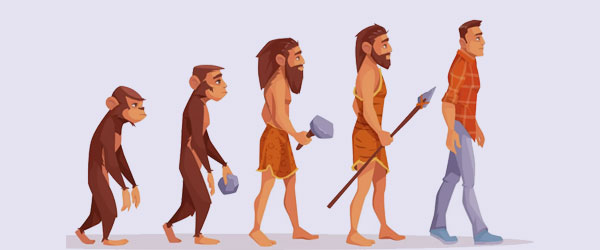
19/1A Shakti Nagar, Nagiya Park Near Delhi University,
New Delhi - 110007 (India)
Anthropology Optional Subject Course: A Detailed Overview
1. Introduction to Anthropology
Anthropology is the systematic exploration of humans, their behaviors, societies, cultures, and development over time. It includes several subfields, such as cultural anthropology, social anthropology, physical anthropology, and archaeology. This discipline offers a comprehensive view of human life, examining biological, cultural, and historical aspects.
Selecting Anthropology as an optional subject for competitive exams, particularly the UPSC (Union Public Service Commission) Civil Services Exam, provides candidates with unique insights into societal issues, human behavior, and cultural diversity.
Reasons to Choose Anthropology as an Optional Subject:
- Thorough Understanding: Anthropology helps in grasping human behavior, cultural norms, and social structures, which is invaluable for civil service roles involving diverse communities.
- Interdisciplinary Nature: The subject overlaps with fields like sociology, psychology, history, and biology, enhancing students’ comprehension of complex human interactions.
- Relevance to Modern Issues: Themes in Anthropology, such as globalization, social change, and human rights, are pertinent to current societal challenges.
2. Syllabus Overview for Anthropology
The Anthropology syllabus for the UPSC Civil Services Exam is divided into two main papers: Paper I and Paper II. Each paper addresses different aspects of the subject.
Paper I: Physical Anthropology and Social-Cultural Anthropology
- Physical Anthropology: This section focuses on human evolution, genetics, and biological aspects of humanity. Key topics include:
- Evolutionary principles
- Human genetic variation
- Primatology and human ancestry
- Forensic anthropology
- Social-Cultural Anthropology: This part explores social structures, cultural practices, and societal dynamics. Important topics include:
- Culture and society
- Kinship, marriage, and family structures
- Economic and political organization
- Religion and belief systems
Paper II: Indian Anthropology
- Tribal and Folk Societies: Understanding the cultures of tribal communities in India and their relations with mainstream society.
- Anthropological Thought: An overview of significant theories and thinkers in anthropology, including functionalism, structuralism, and cultural relativism.
- Contemporary Indian Issues: Examination of current challenges in Indian society, such as social change, development, and environmental issues.
3. Significance of Coaching for Anthropology
Although self-study is essential for mastering Anthropology, coaching can significantly enhance preparation for the subject. Here’s how coaching is advantageous:
- Structured Learning: Coaching institutes offer a well-organized curriculum that ensures comprehensive coverage of all topics, making it easier to grasp complex concepts.
- Expert Instruction: Knowledgeable faculty members with expertise in Anthropology provide valuable insights, clarify difficult topics, and offer practical examples for better understanding.
- Focused Study: Coaching helps students prioritize key areas and develop effective strategies for efficient syllabus coverage.
- Interactive Learning Environment: Many institutes encourage active participation through discussions and debates, fostering critical thinking and clear articulation of ideas.
- Regular Evaluations: Coaching centers often administer mock tests and assessments, enabling students to assess their understanding and readiness for the examination.
4. Key Components of Anthropology Optional Coaching
When exploring an Anthropology optional coaching course, it’s important to understand the key components that facilitate effective learning:
a. Comprehensive Study Materials
Coaching institutes should provide extensive study materials, including textbooks, references, and supplementary resources that thoroughly cover the syllabus. Access to online materials and research articles is also beneficial for deeper insights.
b. Regular Mock Tests
Conducting frequent mock tests simulates the exam environment, allowing students to practice time management and develop effective answering strategies.
c. Personalized Attention and Feedback
Smaller class sizes typically enable more personalized attention, allowing instructors to give constructive feedback on students’ performance and help identify improvement areas.
d. Interview Preparation
Many coaching institutes also provide assistance for the interview stage of the civil services examination, focusing on effectively communicating anthropological concepts and their real-world relevance.
5. Choosing the Right Coaching Institute
Selecting the appropriate coaching institute is vital for successful preparation. Here are factors to consider:
- Reputation: Investigate the institute’s history, including success rates and alumni performance in civil services exams.
- Faculty Qualifications: Look for institutes with experienced faculty members who have strong academic backgrounds in Anthropology and significant teaching experience.
- Student Feedback: Gather opinions from current and former students to assess the quality of instruction and overall experience.
- Location and Accessibility: Evaluate the convenience of the institute’s location and whether it offers online classes for greater flexibility.
6. Conclusion
Opting for Anthropology as an optional subject in competitive exams like the UPSC Civil Services Exam can be a strategic choice, providing candidates with a deep understanding of human behavior and societal issues. A well-structured coaching program can enhance preparation through expert guidance, interactive learning, and valuable resources.
By choosing the right coaching institute and committing to consistent study, students can equip themselves with the knowledge and skills necessary to excel in their examinations and future roles in public service. Understanding anthropological perspectives enables aspiring civil servants to effectively address complex societal challenges and contribute to sustainable development.
